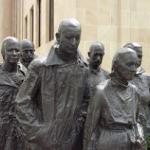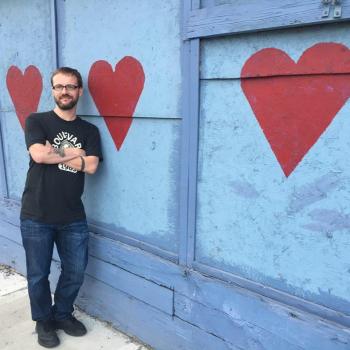“If we learn to relate to others from the perspective of our shared humanity, we could extend our empathetic concern to strangers and even to those whom we find difficult to relate to.” -Thupten Jinpa PhD
Our compassion is often limited. I want to talk about how we can expand it, how we can broaden our circle of concern to include more and more people, because I believe we can. But first, why would we do this? I believe learning to embody boundless compassion (or trying to, anyway) gives us a great deal of strength. It helps promote our resiliency, courage, clarity, and relationships. Helping others helps us. And even just wishing good things for others helps us.
In his book ‘A Fearless Heart’ the former monk turned PhD Thupten Jinpa says, “As a consequence of relating to others through our common humanity, we are graced with no end of opportunities to get out of our own head, a key to both compassion and our personal happiness.”
If I’m spending time working on opening my heart and helping others, then I have less pull from my own emotional baggage. I’m less caught up in that mode of thinking that just thinks “I-Me-Mine” all the time. Self-obsession makes us unhappy because there’s really no end to it. We can’t ever truly have everything we want, so we can never be satisfied. It doesn’t serve us well. So if we can spread that compassion and kindness everywhere, we aren’t just making our corner of the world a slightly better place, we are also helping ourselves find our way to authenticity and contentment.
So, what is our circle of concern?
We can start on reflecting on who we feel compassion toward most easily. Your results may vary. Most people have the easiest time feeling compassion for their immediate family, then long time friends, then acquaintances, etc. For each step removed, compassion tends to get a little harder. And then there’s a thing about our circle of concern that may be a little uncomfortable for us to reflect on.
Perceiving people as being similar to us influences our ability to have compassion toward them. Studies show that it’s easier to relate to people that are more similar to us in background, interests, and opinions. That of course makes sense. If people are similar to us, then we understand them a little better. If we understand them a little better, then it’s easier to show grace and kindness to them. It all makes sense. We’re seeing big evidence of that these days. People are aggressively judging and lashing out at others who have different political opinions. Maybe this has always been the case, but it seems particularly unhelpful to discourse now. We can forget that people we have disagreements with, even big disagreements, are still….people.
Seeing people as fundamentally different from us is a barrier to our compassion at times. And we know that from history. Whenever a group of people wants to harm another group, they will start with efforts at dehumanizing them, at letting everyone know “They aren’t like us,” because it’s easier to carry out crimes against humanity when you convince yourself that the victims aren’t human, or at least are less human than you. But we aren’t powerless here. We can expand our circle of concern to include people that are different from us, people that look, think, speak, and pray differently than we do.
In his book Thupten Jinpa recommends two different things to reflect on for this.
- The basic sameness of self and others: this is the “deep recognition of the common aspiration for happiness and freedom from suffering that we all share.”
- Appreciation for others: this is “through seeing how intimately our lives and well being are inter-connected.”
Basic Sameness is like reflecting on our similarities rather than our differences. Everyone want safety and happiness for themselves and their loved ones just like us. Everyone is slowly getting older just like us. Everyone has various struggles in their lives just like us. Right now everyone has been traumatized by a worldwide pandemic for the last two years. That’s hard to even wrap our heads around. Everyone you meet and talk to has been traumatized by these events, no matter who they are or what they’re doing, we are all in this big struggle together. If we can keep that in mind, it can make a difference.
Appreciation for others is reminding ourselves that we are connected to other people in countless ways. Jinpa says, “As we delve into this thoroughly interconnected reality that is our existence, we realize how there is literally nothing that is part of our life – our existence, our welfare, and even our identity as an individual – that does not depend on others.” We tend to think we’re separate from other people. We’re not. We are connected. And the truth is this whole idea of “I” only really exists in the context of relationships with other people.
When we remind ourselves of these two big things, then expanding our circle of concern doesn’t feel as daunting. But, we may have to remind ourselves many many times. We can supplement this by doing some metta and tonglen style practices and I’ll share some of these practices below:












